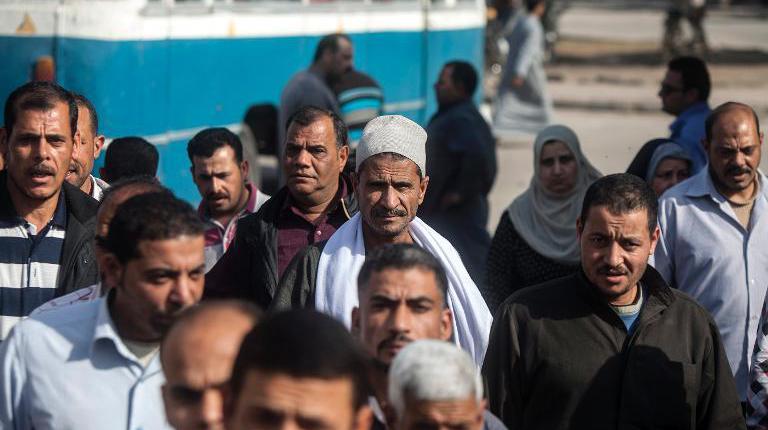Analysis
El-Sisi cracks down on trade unions while Italy talks business
A month after a massive strike in Egypt’s industrial district, Mahalla al-Kubra, President Abdel Fattah el-Sisi sought retribution against the organizers.

When Mahalla al-Kubra moves, regimes in Cairo tremble. That’s a frequent recurrence in El Mahalla, the textile district on the Nile Delta, the heart of workers’ struggles and socio-economic conflicts with the central government.
Abdel Fattah el-Sisi knows it too. The president-general waited a month after the end of the August strike involving 17,000 workers from 30 industrial establishments to crack down on the independent trade unions.
Eleven trade unionists, including some Mahalla leaders, were arrested. The police appeared in their homes on Sept. 16, three days before the big event organized in Cairo in front of the headquarters of the union of taxpayers (and which, as the controversial Egyptian anti-terrorism law requires, the Ministry of the Interior had authorized).
According to the hearsay, among the allegations is incitement to protest, abuse of social media and affiliation with illegal groups. They will remain in custody until the prosecutor interrogates them.
Two days ago, the International Trade Union Confederation and Public Services International, representing 200 million workers worldwide, wrote to el-Sisi to demand the release of trade unionists, members of unions independent from the state-run syndicate.
On Sept. 16, furthermore, four workers and two from Mahalla al-Kubra were suspended from the job for instigating the strike. A week before, six leaders of the August protest was blocked from entering the plant and another was transferred to an Alexandria plant, 150 km away.
They were punished for adhering to the strike, an activity that in this Egypt of growing poverty, soaring inflation and economic crisis remains a taboo. So much so that all 17,000 strikers saw their paychecks slashed by 25 percent in September.
So el-Sisi, who during the strike had not been aware that a repression would trigger much more dangerous protests for the regime’s tenure, is acting at a distance by waiting a month before slapping the independent trade unions with retribution.
The focus of the international community was elsewhere. On Thursday, for the first time, the new Italian ambassador to Cairo, Giampaolo Cantini, met with Foreign Minister Sameh Shoukry. The two reaffirmed their commitment to seek the truth in the Giulio Regeni murder case.
More interesting, though, is the participation of Cantini on the same day at the Sahara Expo, one of the largest conventions in the Arab world. “There are wide possibilities to strengthen economic relations between Italy and Egypt, mainly in small and medium-sized enterprises and the manufacturing sector,” he said.
“Agriculture,” he added, as Nova Agency reports, “is one of the most important sectors of cooperation between Italy and Egypt. There are conditions to increase the volume of trade in the sector in the next quarter.”
This is what Cantini went to Egypt to do: normalize.
Originally published at https://ilmanifesto.it/undici-sindacalisti-arrestati-ma-cantini-lavora-al-business-italia-egitto/ on 2017-09-30
